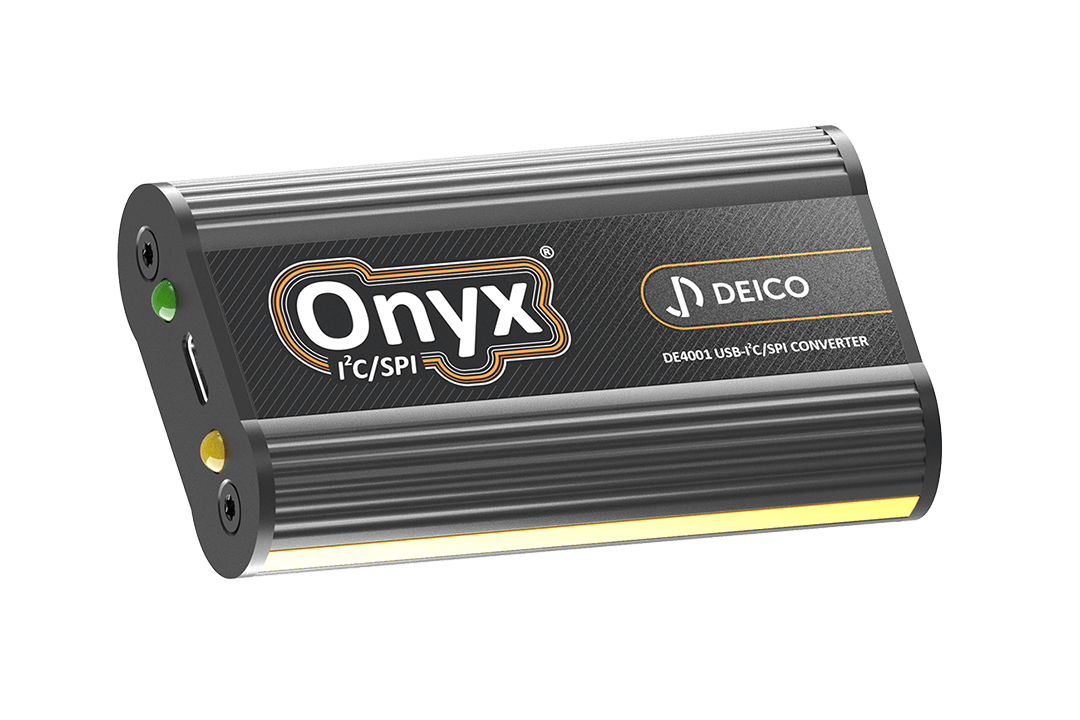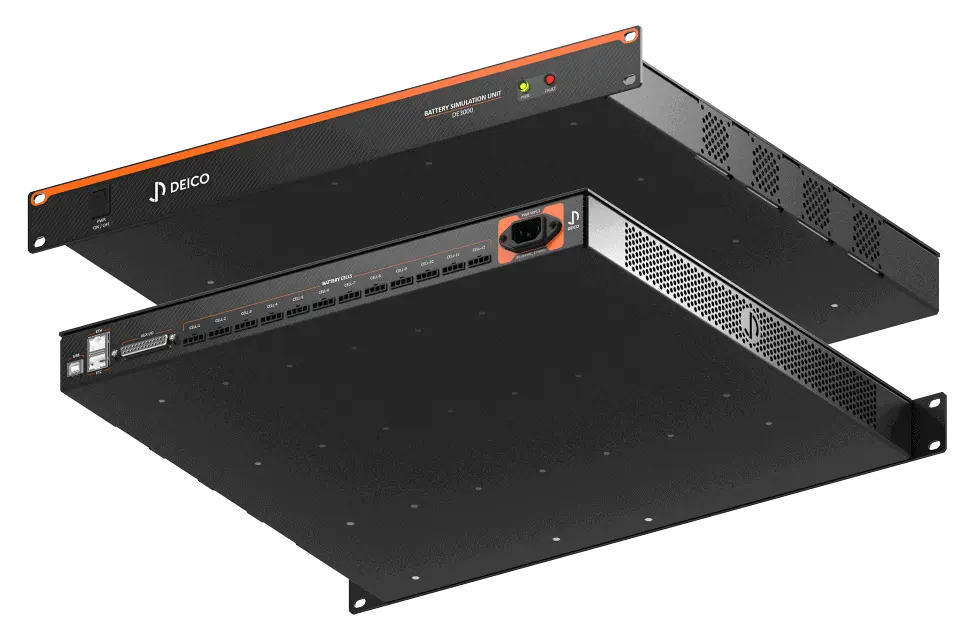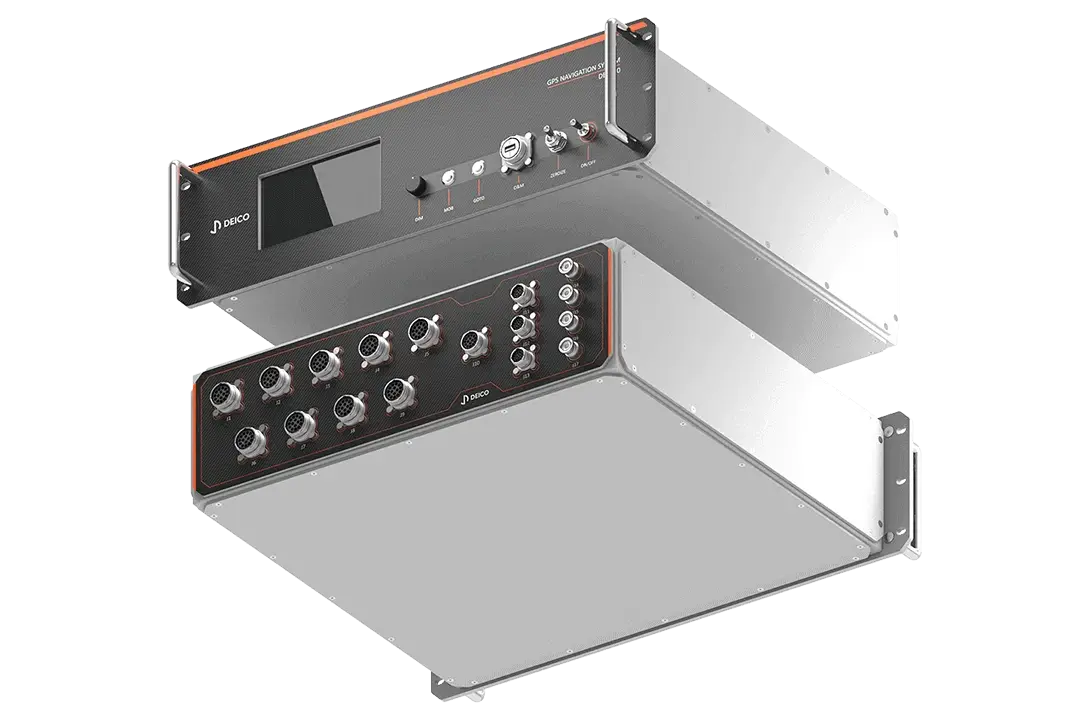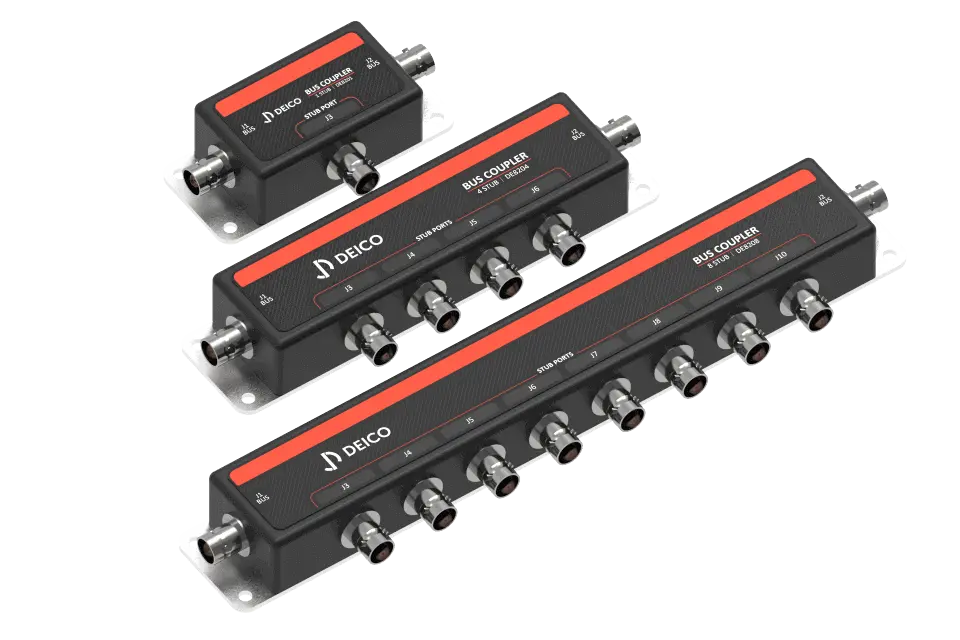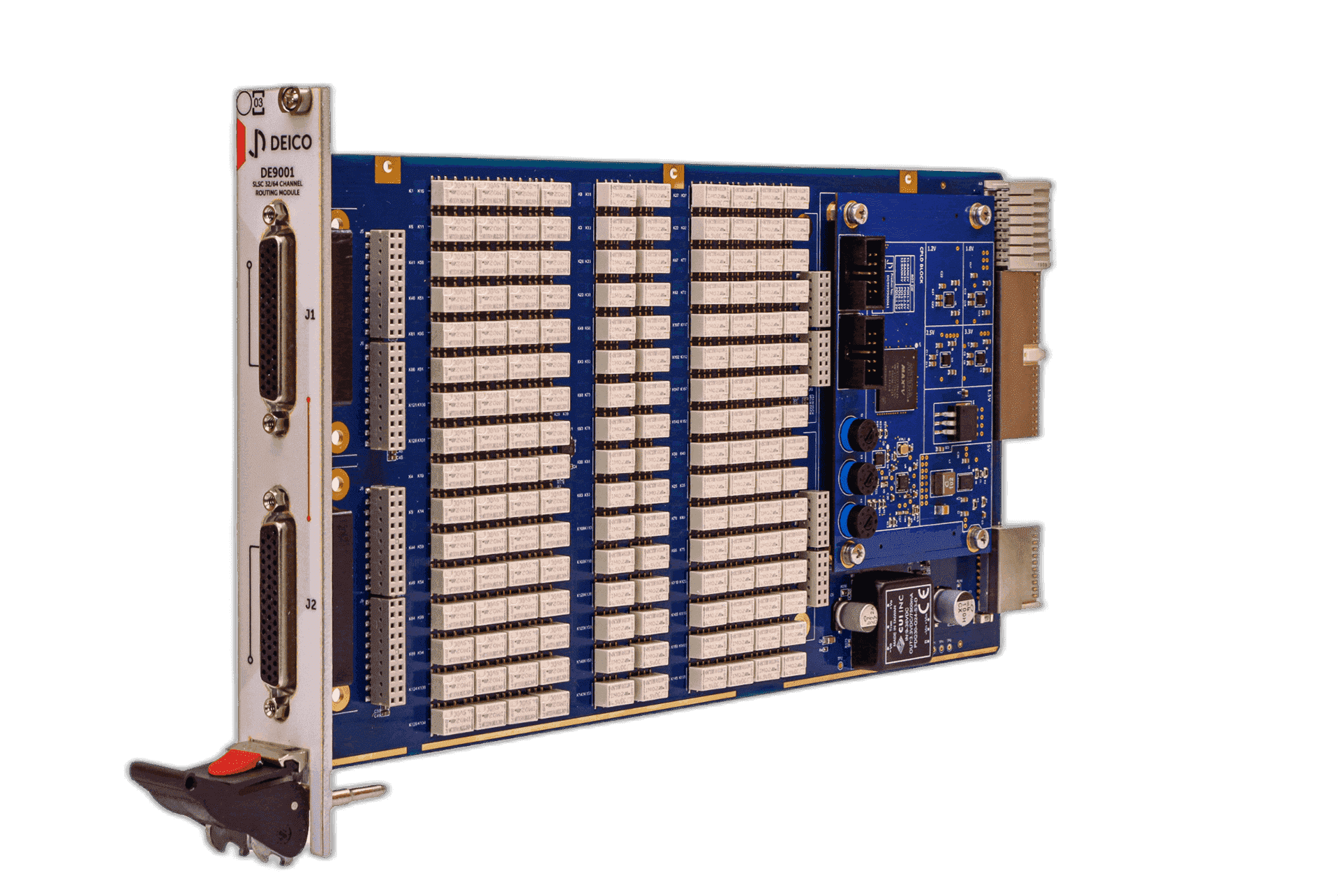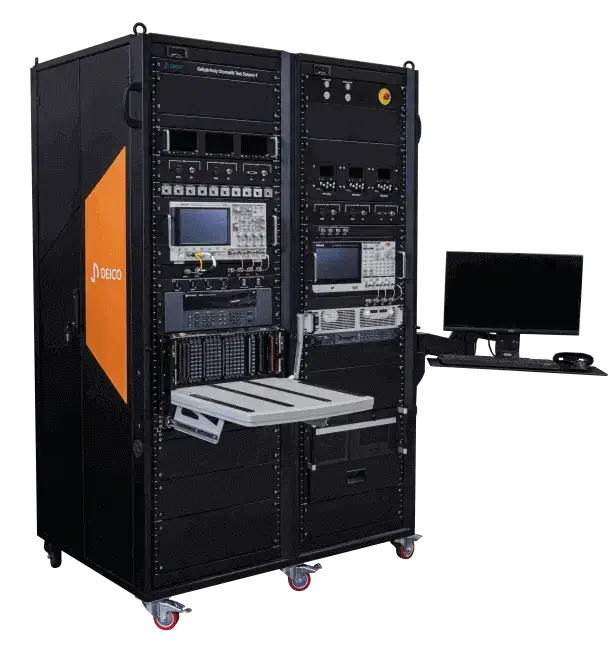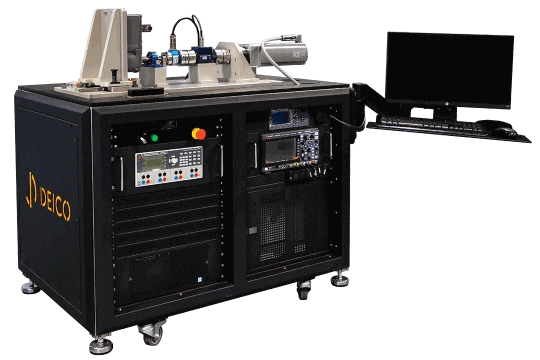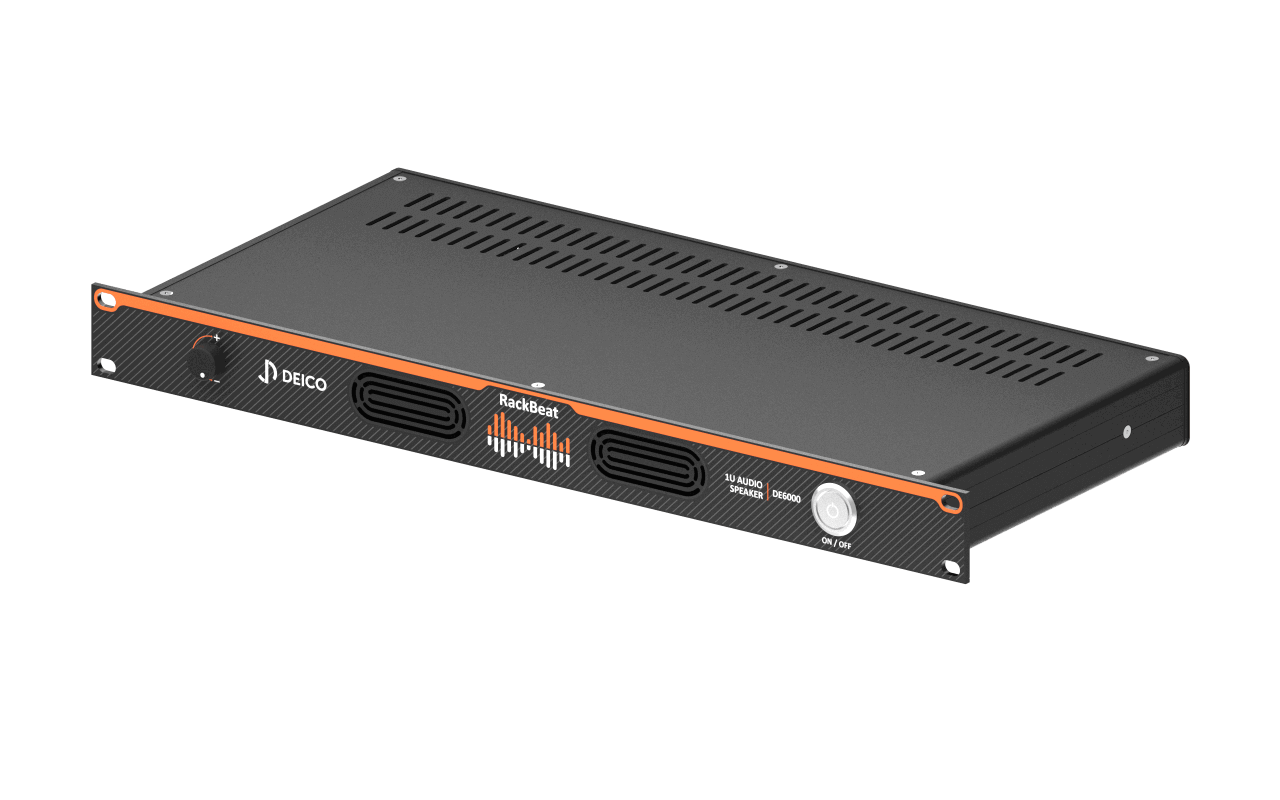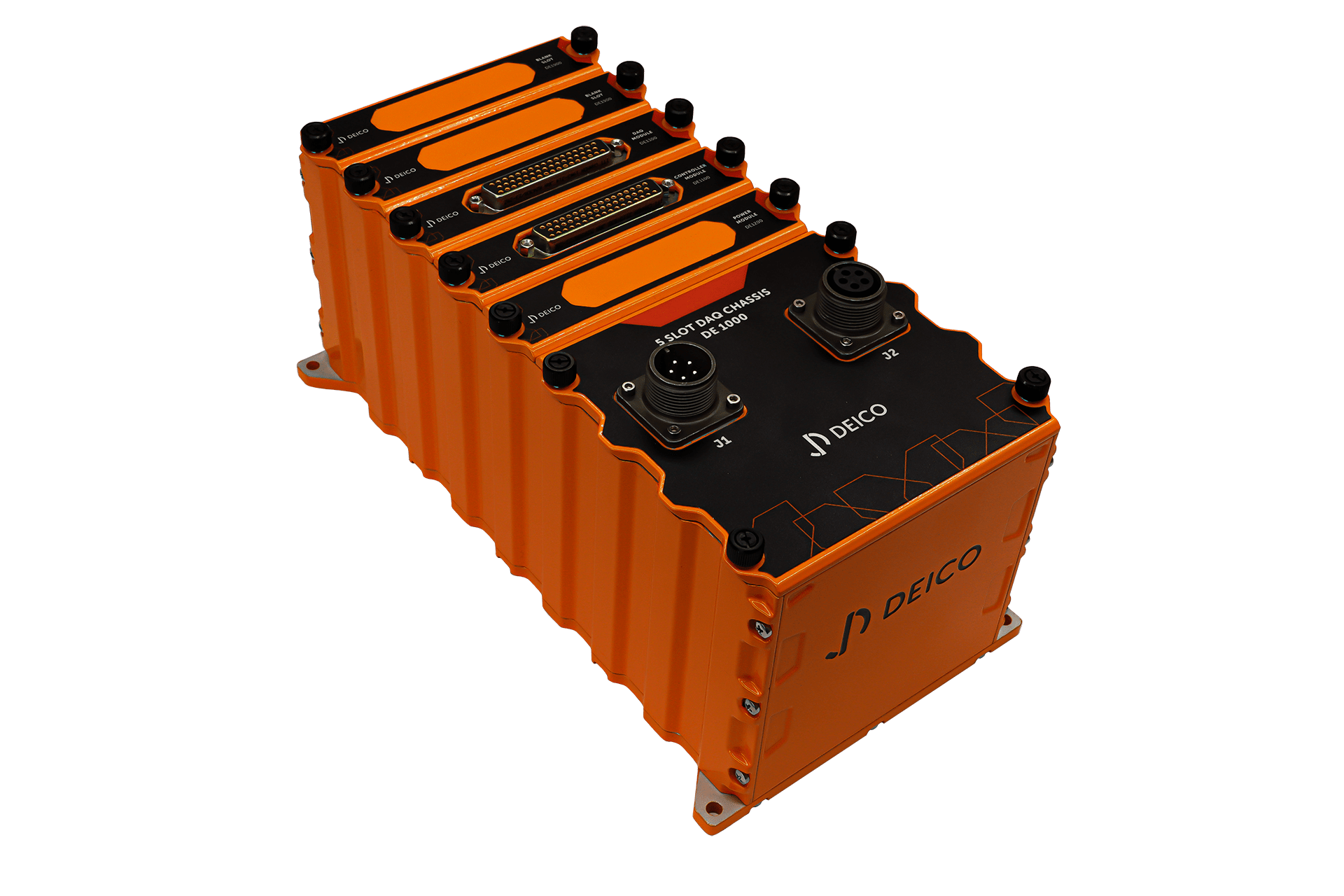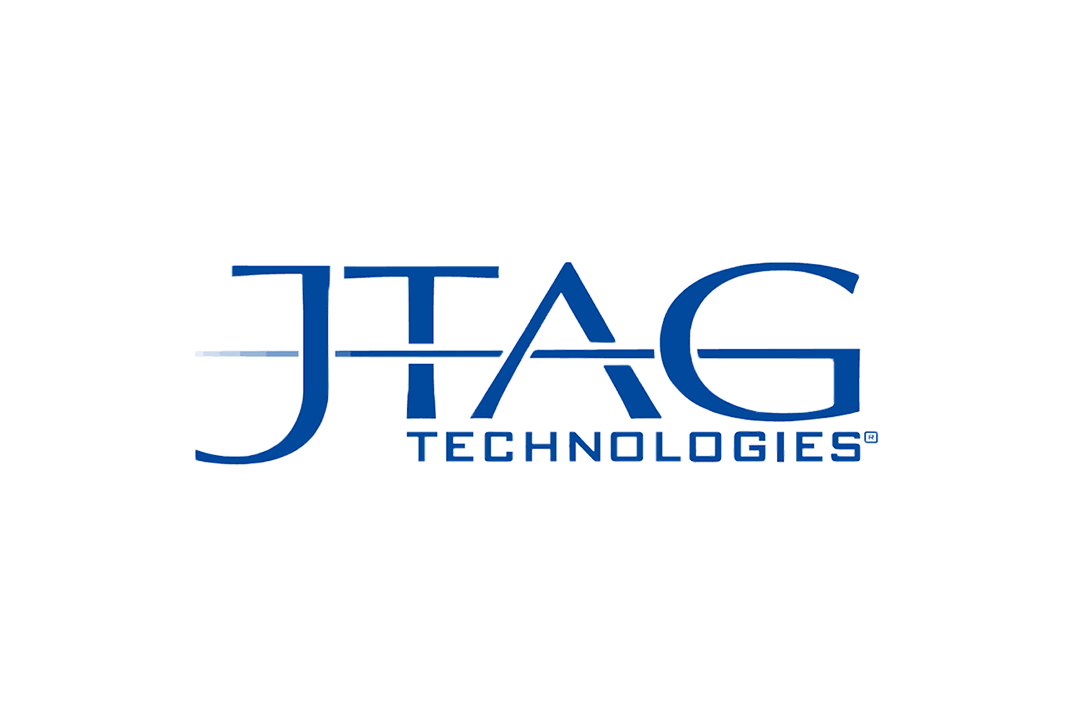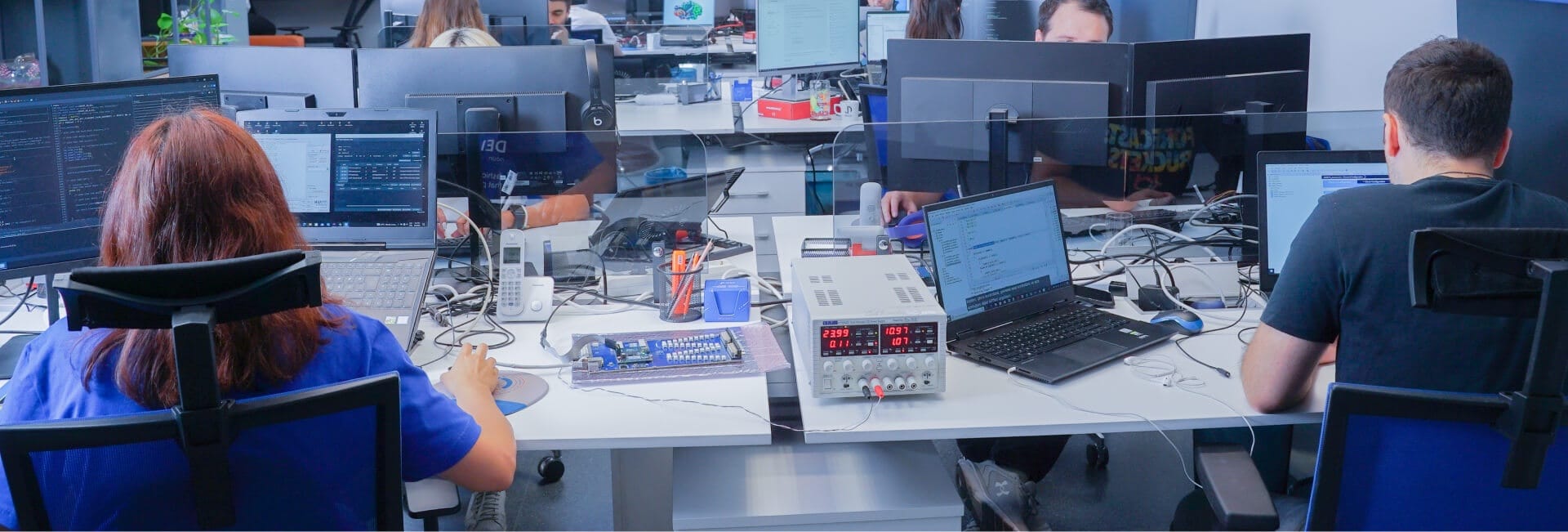What does DEICO offer for your HIL needs?
What’s a Flight Control Computer?
A flight control computer (FLCC or FCC) is a line replaceable unit (LRU) that manages the control surfaces in an aircraft to drive the flight path of it while yielding finer control for stability. FLCC is at the heart of any modern aircraft today; and given the cruciality of its functions, flight control computers are often utilized in a dual, triple or even quad-redundant configuration. They are bound by strict compliance to safety standards in terms of their hardware (e.g., DO-254) and software (e.g., DO-178C). Flight control computers shall provide highly reliable, deterministic performance in harsh environments.
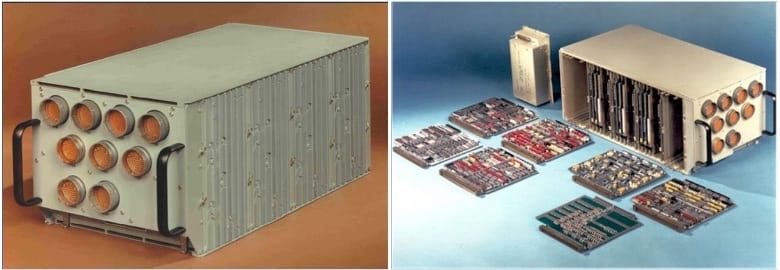
FLCC is a self-contained, fly-by-wire flight system, which is different from mechanical or hydromechanical counterparts. Inputs received regarding either primary (ailerons, rudders, and elevators) or secondary (spoilers, flaps, slats, and air brakes) control surfaces along with information acquired from the stick are transformed into electrical signals and relayed by wire to FLCC. Then, it governs flight control surfaces in order to provide a response for a smoother flight. For instance, considering a pitch board which is a part of FLCC, its role in the fly-by-wire system is to take pitch input from pilot’s control on the stick and compensate to avoid a pitch maneuver that could damage aircraft’s structure or cause pilot to lose control. Including what can happen in this use case, FLCC achieves a smoother flight for different operating conditions by making thousands of measurements per second to stabilize the aircraft with little to no pilot interference.
Our Customer and Their Studies to Develop an FLCC
Since their foundation carrying out activities in aviation and space industry, our customer is responsible for various strategic projects including aircrafts, helicopters and unmanned aerial vehicles. Structural and space systems related services are delivered within our customer’s organization as well. Furthermore, our customer is capable of providing logistics support for all products designed or manufactured. All of these, clearly, has given rise to our customer’s being a center of technological development, modernization, manufacture, system integration and lifecycle support in aviation and space systems.
Today, our customer is one of the top global players in aviation and space industry; and being so, they have embarked upon manufacturing most of its products for defense needs indigenously with a focus on achieving self-reliance and mitigating the burden of imports.
On this journey, one of the key objectives of our customer is to design and manufacture an indigenous FLCC. As mentioned in the previous section, FLCC is a quite complex system; and developing one would not be an easy task. Developing control systems includes challenges associated with modeling the managed element (i.e., plant), operating on sensor data that may get noisy, incomplete and/or inconsistent; becoming adjusted to disturbances such as changes in workloads, altering service levels to fulfill service level agreements, optimizing resource usage and many more.
Moreover, verification which ensures that design realizes specifications is a vital part of a product development cycle. With rising design complexity, functional verification also gains importance on the critical path of this cycle, demanding expensive and time-consuming efforts. There is a certain need for scalable verification solutions as well as a change in test methodology to overcome the difficulty in verifying complex design of FLCC.
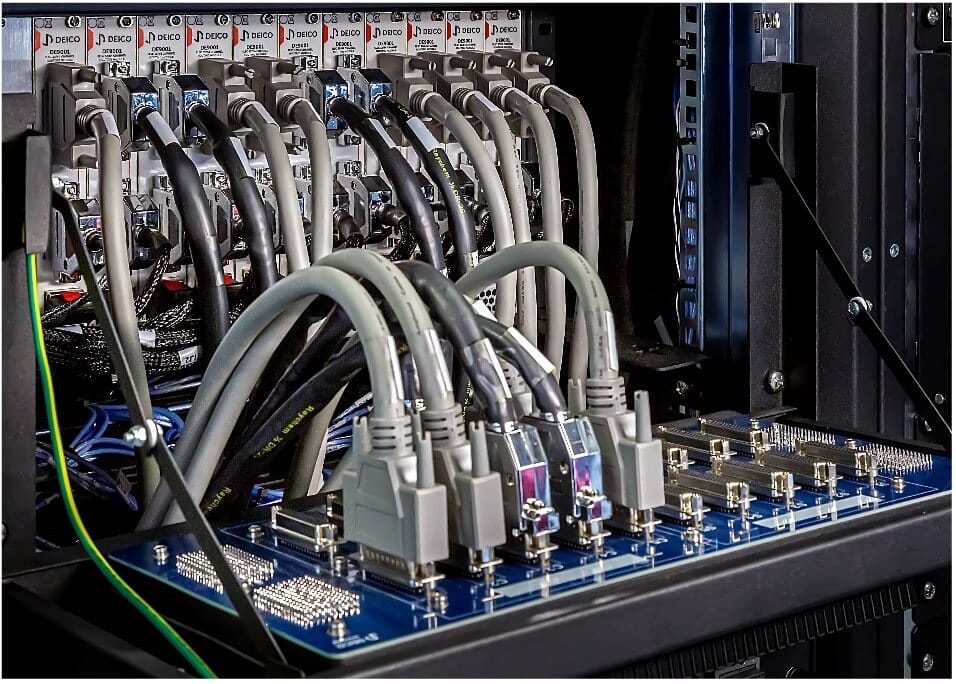
Hardware-in-the-Loop Testing and DEICO FLCC Test System
Since modern systems are getting more and more complex, especially on the software side, it has become more critical than ever to carry out comprehensive and reliable design verification activities. The solution that needs to be developed for validation tests shall be comprehensive and reliable. It should not also cause further burden in terms of cost, running tests and like. The solution will also need to have the flexibility to be updated in parallel with the project requirements.
Since traditional test methods will have difficulty meeting all these expectations, new methods have been developed. Thanks to the solutions offered as Hardware-in-the-Loop (HIL) testing today, it is possible to verify the developed control system components in real time without the need for the final product to be integrated. HIL test technique can be summarized as the verification of a controller, including the embedded software and real signal interfaces, with a test system that simulates the operational environment of the controller over a model, including the relevant signal conditioning hardware.
DEICO designs and manufactures system-level HIL solutions consisting of hardware and software components to meet customer expectations. Offering capabilities such as verification and calibration to its customers, DEICO provides smart and safe test infrastructures allowing customers to improve their development processes. Likewise, for their customer’s request for help in developing an indigenous FLCC, DEICO has designed, manufactured and delivered upon self-testing a HIL test system, which is also known as DEICO FLCC Test System.
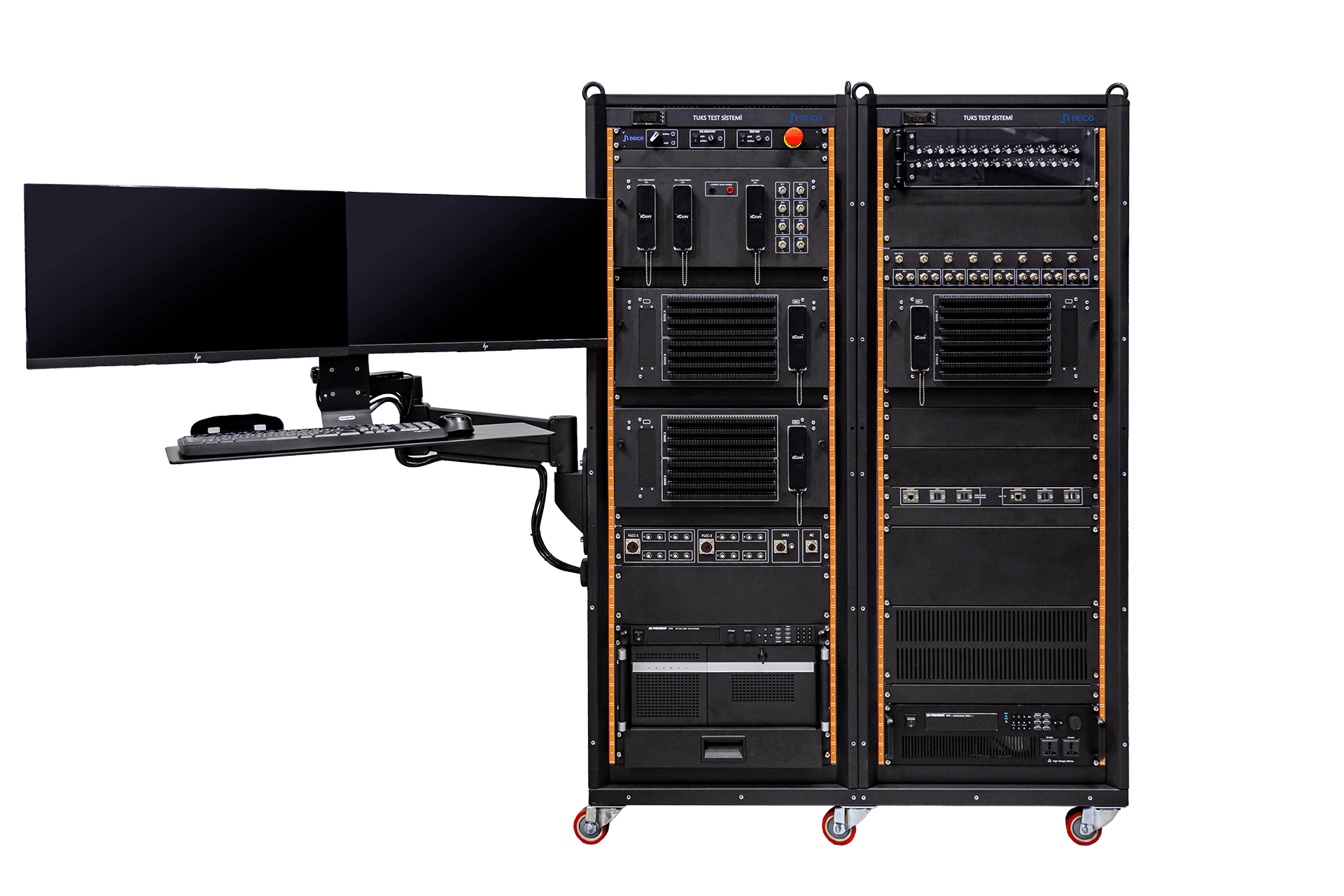
DEICO FLCC Test System has objective of evaluating the performance of the flight control computer that our customer wants to develop. It has been designed and established based on test and measurement instruments of different form factors along with various signal conditioning competence. The test system also has capability of accommodating real components for the sake of increasing test coverage. In order to meet real-time test requirements a software with a user interface has been developed based on the real-time operating system. The presented system has been successfully utilized in the joint HIL simulation of flight control computer. The results indicate that the HIL test system runs steadily and accurately; in other words, it can be a valuable platform for the design and verification of the aircraft flight control computer before its flight test.
DEICO FLCC Test System allows our customer to perform a simulation of realistic flight condition using related hardware and software. Thanks to the simulation achieved, now they use DEICO FLCC Test System as a part of their development process and can validate the error-free implementation of the flight controller on the target hardware in addition to the real-time performance of controller software. DEICO FLCC Test System helped them to evaluate such a safety-critical system, which is a mandatory step prior to real flight tests. Their goal of having a comprehensive, reliable and cost-effective solution for design verification has been achieved.
